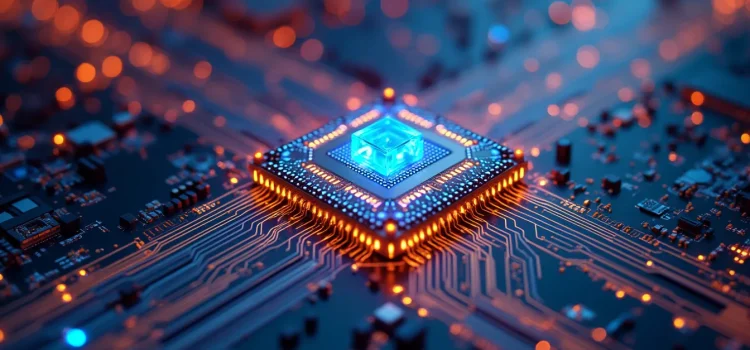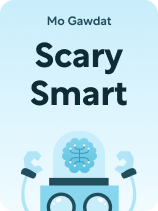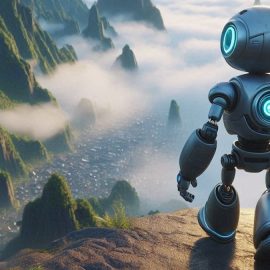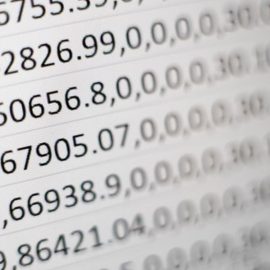

This article is an excerpt from the Shortform book guide to "Scary Smart" by Mo Gawdat. Shortform has the world's best summaries and analyses of books you should be reading.
Like this article? Sign up for a free trial here.
What is quantum computing, and how might it impact artificial intelligence? Could this technology revolutionize the way we think about AI?
In Scary Smart, Mo Gawdat explores the potential of quantum computing to accelerate AI development. He discusses how quantum computers process information differently from classical computers. This unique approach allows quantum computers to handle more complex problems.
Read on to discover Gawdat’s predictions about the future of AI and quantum computing, and learn why some experts disagree with his optimistic outlook.
Quantum Computing
Gawdat predicts that progress toward artificial general intelligence will be sped up by a technology called quantum computing. So, what is quantum computing? He explains that quantum computers take advantage of quantum mechanics, the theory that predicts strange behaviors of matter and energy at the atomic level. At this level, particles can blink in and out of existence, occupy more than one position at the same time, and exist in multiple states simultaneously. Quantum computers use these counterintuitive phenomena to process information differently from classical computers.
Classical computers represent information with “bits.” Each bit contains a one or a zero. String enough ones and zeroes together, and you have code that represents a letter, a number, or any other piece of information. Quantum computers process data in “quantum bits” or “qubits.” Because of a phenomenon called superposition, where a particle can exist in two different states at the same time, each quantum bit can contain both a one and a zero simultaneously. Each quantum bit contains twice as much information as a traditional bit, enabling the computer to consider more information at a time without more processing power.
(Shortform note: If you’re having trouble picturing how traditional bits and quantum bits are different, try envisioning each bit of information as a point within a sphere. Experts say that in traditional computers, the bit can be in one of only two places: at one end of the sphere or the other. In quantum computers, the bit has infinite possible locations and can be anywhere inside the sphere. This lets quantum computers consider much more information than traditional computers without requiring more time or processing power. As Gawdat points out, this difference in “calculating power” grows exponentially with the number of quantum bits since with each additional quantum bit, the number of states they can represent doubles in number.)
Gawdat explains that quantum computers can solve much more complex problems than classical computers can handle—like the problem of creating AI that matches or surpasses human intelligence. He contends that quantum computing will make it possible for AI to become much smarter than we are: billions of times smarter, in his estimation.
(Shortform note: Gawdat isn’t alone in predicting that AI will become a billion times smarter than humans. Futurist Ian Peterson agrees and says the only way to keep up is to connect our brains to AI to match its IQ, an approach Elon Musk states will ready us to deal with malevolent AI. But other experts say we can’t anticipate the consequences of this strategy: If AI could “upgrade” our brains to an IQ of 10,000—nowhere near a billion times the average IQ of 85 to 115—it’s unclear whether our systems for rational thought and emotion processing could even keep up.)
| Will Quantum Computing Supercharge AI? While Gawdat predicts that quantum computing will accelerate AI development, some experts say that’s far from a foregone conclusion. For decades, quantum computers have been largely hypothetical, partly because the quantum states they rely on are hard to maintain long enough for the machine to complete a calculation. Experts say this leads quantum computers to make an impractical number of errors. They’ve also yet to demonstrate that quantum computers can outperform “ordinary” supercomputers in practical terms. Quantum computers can solve specific kinds of problems that become too big for classical computers to deal with. But, for most tasks, a classical computer remains faster than a quantum computer. Some experts contend that the complexity of operating quantum computers—which makes it time-consuming to load data and “translate” it into a quantum state as well as slow to read out the results once a calculation is done—means it’s impractical to rely on them for tasks involving large amounts of data. That includes building a kind of AI called machine learning. (In machine learning, computers find patterns, make predictions, and learn without being explicitly programmed.) While Gawdat is certain that quantum computing and AI will intersect, some experts say it’s unclear whether a “fusion” of quantum computing and AI will be practical. |

———End of Preview———
Like what you just read? Read the rest of the world's best book summary and analysis of Mo Gawdat's "Scary Smart" at Shortform.
Here's what you'll find in our full Scary Smart summary:
- Why we can’t control or contain artificial intelligence
- The most efficient way to change what AI learns to do
- How to keep AI from taking us down a path toward dystopia






